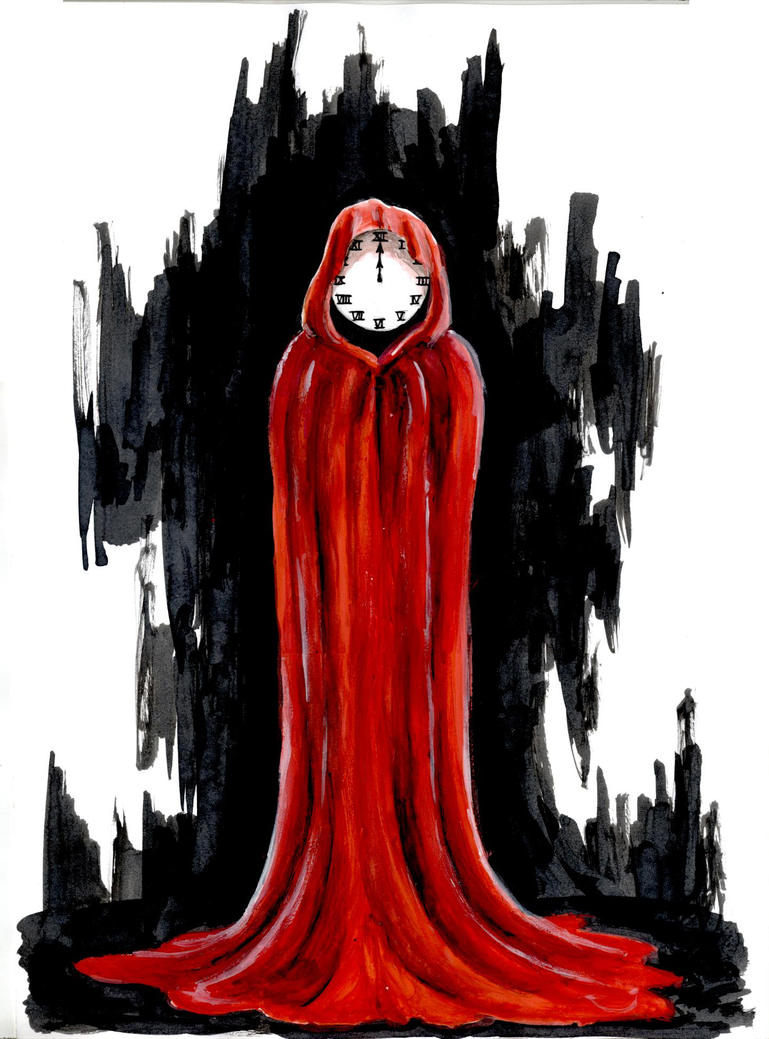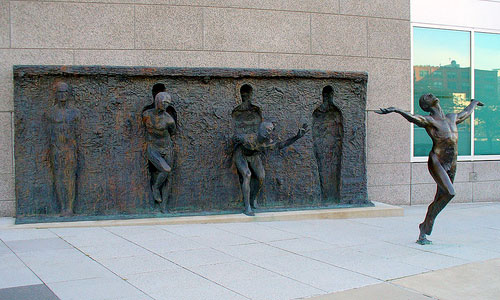One representation of the connection between time and death can be found in the Doomsday Clock. This large, symbolic clock is a measurement for how close the world is to destruction, annihilation, and the apocalypse. Its initial intention in 1947 (created by the Bulletin of Atomic Scientists) was to measure the likelihood of nuclear war with 7 minutes to midnight the original time. Using midnight and the tolling of the clock as the endpoint to the countdown, the clock does not move constantly as a normal clock would. Instead, the hands are moved closer and farther away in response to certain actions and occurrences in the world. For example, the clock moved to two minutes to midnight in 1953, during the height of the Cold War. Despite its original symbolism, the Doomsday Clock now responds and moves in accordance to not only nuclear threats, but other apocalyptic threats such as nuclear energy, climate change and malicious technologies. The most recent move from seventeen minutes to five minutes to midnight reflects a topic previously discussed on this blog: climate change. Citing research about the consequences of climate change, the Doomsday Clock moves nearly as close to imminent destruction as under the threat of nuclear war.
The symbolism and rhetoric of the Doomsday Clock makes the comparison of climate change to nuclear war, legitimizing the threat by equating them. To consider the threat from climate change as equal to as as dangerous as nuclear war is a powerful rhetorical statement being made by the BAS. Whether one agrees that climate change should be included in the Doomsday Clock or not, the idea that the end is near is a belief held by many people worldwide. A recent poll shows that 15% of the world population believes that the world will end during their lifetime. Interesting to note is that one's belief in the apocalypse happening in our lifetime is negatively associated with education level. The implications of this could be as simple as those with less education are more likely to be persuaded by alarmist or apocalyptic rhetoric that answers their questions about life and death. This is a relationship that might need further explication and research in another post, but the finding in this study is an intriguing point. Overall, one in seven people believe in the impending apocalypse, and though these percentages fluctuate across nations, the tendency towards apocalyptic thoughts is a global phenomenon. That is to say, it is human to worry and be anxious about death, believing that the end is always near. The range of how the apocalypse will occur varies.
Some believe that the earth will eventually be consumed by the sun.
Some believe that the rapture will occur, saving religious believers and turning the world into a war-torn wasteland.
Some believe that climate change will become unstoppable, with massive flooding, displacement, famine, extreme weather, and war.
Some believe that a disease or virus will infect the world's population causing massive chaos and death.
Some believe that militant groups or governments may obtain nuclear weapons and begin a domino effect of nuclear war.
These beliefs range widely from the scientific to the religious to the fantastical, but the interesting point is that the end is not debated, only when and how. Just as no one can stop the ticking clock in the velvet room, humankind is aware of its eventual destruction, whether personal or global.






